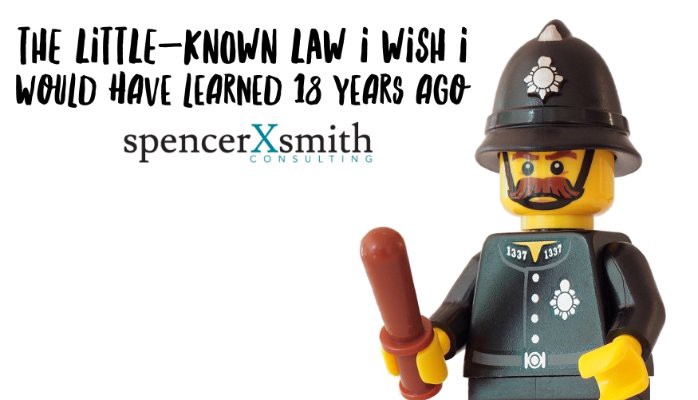“How do you handle rejection?” An unexpected answer to a group of college seniors.
“How do you handle rejection?”
This question was posed to me by a student in the PRSSA (Public Relations Student Society of America) club after I recently spoke to their group at the University of Wisconsin. I was sharing the strategies I’ve used to earn quotes & features in major publications like Forbes, The Huffington Post, and Money Magazine in the past couple months.
“Have a lot of opportunities in the pipeline.”
My answer?
I want you to use this law to your advantage now.
The student posed this query with the implied question, “What about all the times you didn’t get quoted or featured? What about all the times you’ve failed?”#IfIWere22 I wish someone would have told me that there’s a little-known law that will help you handle rejection, and had I known it then, I would have avoided a lot of disappointment.

Parkinson’s Law and how it can positively affect your attitude
Have you heard of Parkinson’s Law? It was first described in The Economist in 1955 by Cyril Northcote Parkinson, and simply states:
“Work expands so as to fill the time available for its completion.”
Think about it this way — let’s say you have one task to accomplish during a semester-long class in school, and it’s a term paper. You have 14 weeks to write it. When do you finish?
The night before. Typically after pulling an all-nighter, right?
Why?
Although — given you had the necessary knowledge — you could have finished your paper the first week of class, you waited. Why? It’s easier to procrastinate AND there’s no tangible benefit to finishing the paper early. As a result, your task grew to occupy the entire period allotted. You didn’t need that much time, you simply took it because it was offered. “Successful” completion of the project was decided for you. As long as you weren’t late, you felt good about using the time given.
Let’s reframe Parkinson’s Law to help you achieve the things you want through minimizing the effects of failure. Let’s rephrase the definition above as:
“Hope expands so as to fill the opportunities available for success.”
After 3,000 in-person sales meetings over a seven year period between 2008–2015, I realized one major truth: you cannot control your outcomes. You can only control your activities. Some deals will completely blow up in the 11th hour, and some will seemingly happen by magic.
If luck is being the right place at the right time, ensure you’re in the right places at the right times as much as you possibly can.
By growing the opportunities you have “on your mind” at any given time, something really cool will start to happen. Negative outcomes will mean less because you have so many other possibilities. Positive outcomes will pop-up and surprise you because they weren’t top-of-mind. You’ll start being called “lucky” by your friends and colleagues.
Use the simple concept from Parkinson’s Law to limit the time you spend reflecting on the tasks called failures, and continuously fill your opportunities to expand your hope.
Have you ever heard of Parkinson’s Law? Do you agree with my interpretation of it?
Hi, I’m Spence. After working my entire adult life in technology-related and business development jobs, I discovered that social media is the greatest means there’s ever been of developing a ROTOMA (Return on Top of Mind Awareness) with your target market. After continuously experimenting with social media as a business development tool, I share ideas only after I prove they work for myself. If you’d like me to share these concepts in-person at your event or conference, check out my website at spencerXsmith.com/speaking.
Originally published at https://www.linkedin.com on May 2, 2016.
Originally published at medium.com


